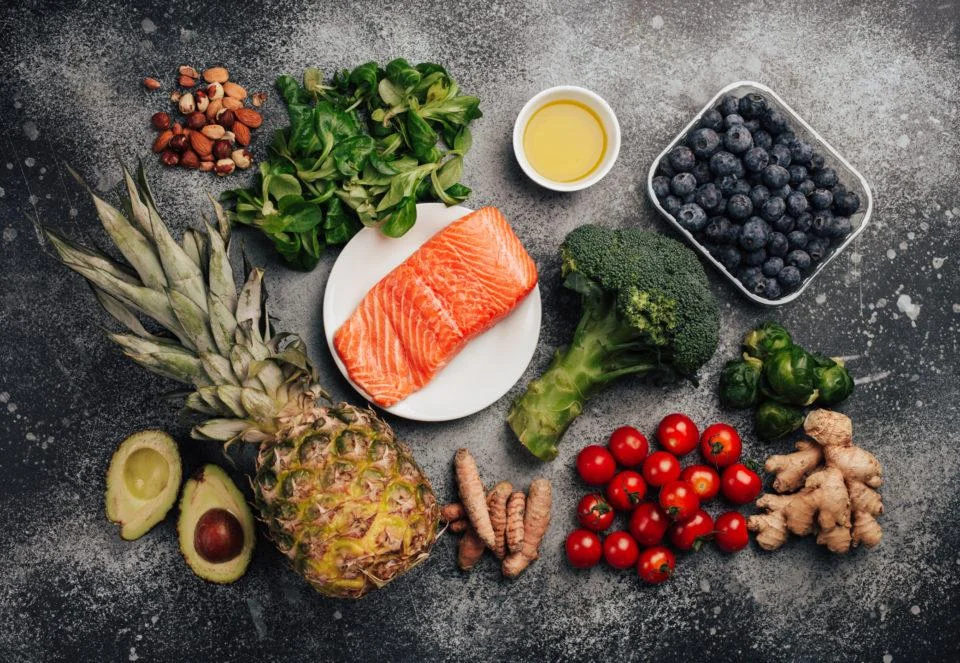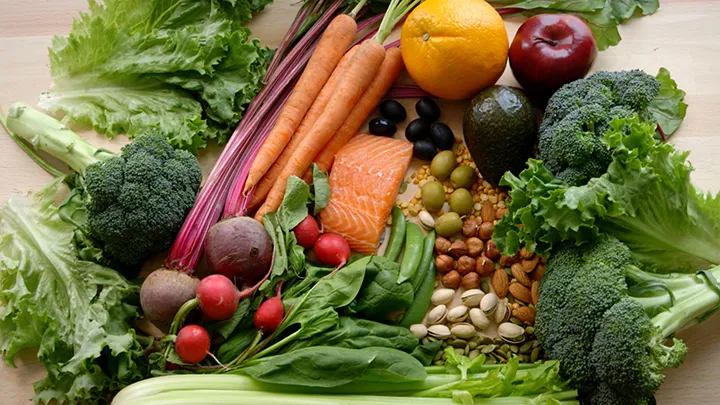Arthritis Diet
Optimal Diet for Arthritis: Foods to Embrace and Avoid for Joint Health
Arthritis is a prevalent condition marked by joint inflammation and pain. While no diet can cure arthritis, strategic food choices can help manage symptoms and support joint health. This guide offers insights into foods to include and avoid for those with arthritis, promoting informed dietary decisions for better well-being.
Foods to Include for Joint Health
Omega-3 Fatty Acids:
– Fatty Fish: Salmon, mackerel, and sardines are excellent sources of omega-3 fatty acids. These are known for their anti-inflammatory properties, which can alleviate joint pain and stiffness.
– Plant-Based Sources: Additionally, chia seeds, flaxseeds, and walnuts provide plant-based omega-3s, offering similar benefits.
Colorful Fruits and Vegetables:
– Berries and Citrus Fruits: Berries, cherries, and oranges are rich in antioxidants and anti-inflammatory compounds. Consequently, they help reduce inflammation and support joint health.
– Leafy Greens and Vegetables: Furthermore, spinach, kale, broccoli, and bell peppers are high in vitamin C, crucial for collagen production and joint health.
Whole Grains:
– Nutritious Options: Brown rice, quinoa, and whole wheat bread are fiber-rich, helping maintain a healthy weight. As a result, this reduces stress on joints and eases arthritis symptoms.
Nuts and Seeds:
– **Anti-Inflammatory Choices:** Almonds, walnuts, and flaxseeds are packed with omega-3 fatty acids, fiber, and antioxidants. These nutrients contribute to reducing inflammation and supporting joint health.

Olive Oil:
– Healthy Fat: Extra virgin olive oil contains anti-inflammatory compounds. Therefore, it serves as a healthy alternative to other cooking oils and dressings.
Foods to Avoid or Limit for Arthritis
Processed and Fried Foods:
– Unhealthy Options: Fast food, packaged snacks, and fried foods often contain unhealthy fats, refined carbs, and additives. These ingredients promote inflammation and exacerbate arthritis symptoms.
Saturated and Trans Fats:
– Inflammatory Foods: Red meat, full-fat dairy products, and butter are high in saturated fats. Similarly, trans fats found in processed and fried foods increase inflammation and heart disease risk.
Added Sugars:
– Sugary Treats: Soda, candy, and baked goods with added sugars can trigger inflammation and contribute to weight gain. Instead, opt for natural sweeteners like date paste or minimize sugar intake.
Alcohol:
– Moderation Needed: Excessive alcohol can worsen inflammation and interfere with arthritis medications. Thus, limiting or avoiding alcohol is advisable.
Individual Considerations and Conclusion
Everyone’s experience with arthritis is unique, and dietary needs can vary. Therefore, some foods may trigger symptoms in certain individuals but not in others. Keeping a food diary and consulting with a healthcare professional or registered dietitian can help tailor a personalized arthritis-friendly diet plan.
In summary, a balanced diet rich in omega-3 fatty acids, colorful fruits and vegetables, whole grains, nuts, and seeds supports joint health and helps manage arthritis symptoms. Conversely, limiting processed and fried foods, saturated and trans fats, added sugars, and excessive alcohol is crucial. By making informed dietary choices, individuals with arthritis can proactively manage their condition and enhance their overall well-being.
HEalth : Inflammation Control: Top 3 Foods to Skip for Optimal Health
